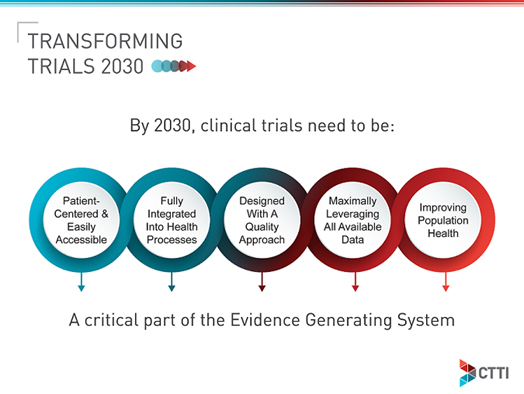Clinical trials are the cornerstone of medical research, driving innovation and advancing treatments across various therapeutic areas. In recent years, innovative approaches in clinical trial design and execution have emerged, reshaping the landscape of future medicine. This article explores the transformative impact of innovative clinical trials, highlighting key trends, technological advancements, regulatory considerations, and their implications for the future of healthcare.
Evolution of Clinical Trial Innovation
- Adaptive Trial Designs:
- Adaptive clinical trials allow for real-time adjustments to study protocols based on interim data analysis, optimizing trial efficiency and flexibility.
- This approach enhances the probability of success by focusing resources on promising treatments and adapting to patient responses during the trial.
- Basket and Umbrella Trials:
- Basket trials evaluate multiple treatments targeting specific genetic mutations across different types of cancer, facilitating personalized medicine and biomarker-driven therapies.
- Umbrella trials investigate various treatments for a single disease subtype, identifying optimal treatment strategies based on patient-specific characteristics.
- Virtual and Decentralized Trials:
- Virtual and decentralized trials leverage digital health technologies to conduct study activities remotely, enhancing patient accessibility, retention, and data quality.
- Telemedicine, wearable devices, and electronic data capture systems enable remote monitoring and patient engagement, reducing geographical barriers and operational costs.
Technological Advancements Driving Innovation
- Digital Health Technologies:
- Integration of telehealth platforms facilitates virtual consultations, patient-reported outcomes, and remote study visits, enhancing participant engagement and data collection efficiency.
- Wearable devices monitor patient vitals, physical activity, and biomarkers in real-time, providing continuous insights into treatment efficacy and patient health.
- Artificial Intelligence (AI) and Machine Learning:
- AI-driven algorithms analyze large datasets to identify patterns, predict patient responses to treatments, and optimize clinical trial design.
- Machine learning models enhance recruitment strategies, stratify patient populations, and personalize treatment approaches based on genetic, demographic, and clinical data.
- Blockchain Technology:
- Blockchain ensures data integrity, transparency, and security in clinical trials by recording immutable transaction records and enhancing regulatory compliance.
- Smart contracts streamline multi-party agreements, payment processes, and data sharing among stakeholders, promoting collaboration and trust in clinical research.
Regulatory Considerations and Frameworks
- FDA and EMA Guidelines:
- Regulatory agencies, such as the U.S. Food and Drug Administration (FDA) and European Medicines Agency (EMA), provide guidance on incorporating innovative trial designs, ensuring patient safety, and maintaining data integrity.
- Frameworks support adaptive pathways, real-world evidence, and patient-centered outcomes in regulatory submissions, accelerating approval timelines for breakthrough therapies.
- Data Privacy and Security:
- Compliance with data protection regulations (e.g., GDPR) and ethical standards is critical in virtual and decentralized trials, safeguarding patient confidentiality and privacy.
- Secure data management systems and encryption protocols mitigate cybersecurity risks and ensure compliant handling of sensitive health information.
Future Implications for Healthcare and Medicine
- Personalized Medicine and Precision Healthcare:
- Innovative clinical trials enable the development of targeted therapies based on individual genetic profiles, biomarkers, and disease characteristics.
- Precision medicine approaches improve treatment outcomes, reduce adverse effects, and optimize healthcare resource allocation.
- Patient-Centric Care and Engagement:
- Patient involvement in clinical trial design and implementation enhances study recruitment, retention, and adherence to protocol requirements.
- Digital tools and remote monitoring empower patients to participate in trials from their homes, promoting inclusivity and diversity in research participation.
Conclusion
Innovative clinical trials are pivotal in shaping the future of medicine, offering new paradigms for research, treatment development, and patient care. By embracing adaptive trial designs, leveraging digital health technologies, and adhering to regulatory frameworks, stakeholders in the healthcare and pharmaceutical industries can accelerate innovation and deliver transformative therapies to patients worldwide.













